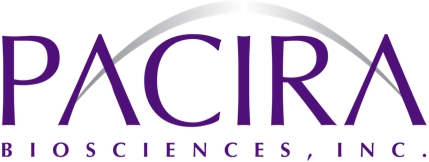Study Shows EXPAREL® Provided Improved Pain Control, Shorter Length of Hospital Stay and Substantial Cost Savings Following Total Knee Replacement
Data Presented at 7th Annual Marshall Steele Orthopedic & Spine Summit
The study evaluated a matched cohort of 200 patients undergoing TKA, half of whom (n=100) received femoral nerve block, while the other half received EXPAREL infiltration. The investigators recorded average pain scores, knee flexion, length of stay, and performed a cost analysis for both groups.
Compared to patients who received a femoral nerve block, patients treated with EXPAREL experienced:
- Lower pain scores during the first 24 hours (4.0 in the EXPAREL group compared to 4.9 in the femoral nerve block group) and on day 2 after surgery (4.7 in the EXPAREL group compared to 5.3 in the femoral nerve block group)
- Greater improvement in knee flexion at both week 3 and week 9 follow up (109° to 121° for the EXPAREL group vs. 100° to 105° for the femoral nerve block group)
- Shorter overall length of hospital stay (2.2 days for the EXPAREL group vs. 2.5 days in the femoral nerve block group), with greater likelihood of discharge the day after surgery (12 percent of patients in the EXPAREL group compared to zero patients in the femoral nerve block group)
-
A 55.5 percent reduction in medication and delivery system costs (
$285 vs.$640 , respectively, independent of additional cost savings related to anesthesia fees)
“While femoral nerve blocks have long been chosen for postsurgical
analgesia following TKA, their use has been associated with quadriceps
muscle weakness, which can lead to falls and negatively impact
ambulation, which we know is an imperative step in the rehabilitation
component of orthopedic surgery,” said
Additionally, increased satisfaction was reported by patients in the EXPAREL arm of this study, as well as by the nurses and therapists who cared for these patients, compared to those receiving femoral nerve block.
EXPAREL is indicated for single-dose administration into the surgical site to produce postsurgical analgesia.
About Pacira
About EXPAREL®
EXPAREL (bupivacaine liposome injectable suspension) is indicated for single-dose infiltration into the surgical site to produce postsurgical analgesia. The product combines bupivacaine with DepoFoam, a proven product delivery technology that delivers medication over a desired time period. EXPAREL represents the first and only multivesicular liposome local anesthetic that can be utilized in the peri- or postsurgical setting in the same fashion as current local anesthetics. By utilizing the DepoFoam platform, a single dose of EXPAREL delivers bupivacaine over time, providing analgesia with reduced opioid requirements for up to 72 hours. Pivotal studies have demonstrated the safety and efficacy of EXPAREL in patients undergoing bunionectomy or hemorrhoidectomy procedures and additional studies are underway to further demonstrate the safety and efficacy in other procedures. Additional information is available at www.EXPAREL.com.
Important Safety Information
EXPAREL is contraindicated in obstetrical paracervical block anesthesia. EXPAREL has not been studied for use in patients younger than 18 years of age. Non-bupivacaine-based local anesthetics, including lidocaine, may cause an immediate release of bupivacaine from EXPAREL if administered together locally. The administration of EXPAREL may follow the administration of lidocaine after a delay of 20 minutes or more. Other formulations of bupivacaine should not be administered within 96 hours following administration of EXPAREL. Monitoring of cardiovascular and neurological status, as well as vital signs should be performed during and after injection of EXPAREL as with other local anesthetic products. Because amide-type local anesthetics, such as bupivacaine, are metabolized by the liver, EXPAREL should be used cautiously in patients with hepatic disease. Patients with severe hepatic disease, because of their inability to metabolize local anesthetics normally, are at a greater risk of developing toxic plasma concentrations. In clinical trials, the most common adverse reactions (incidence greater-than or equal to 10%) following EXPAREL administration were nausea, constipation, and vomiting.
Please see the full Prescribing Information for more details available at http://www.exparel.com/pdf/EXPAREL_Prescribing_Information.pdf.
Source:
Pacira Pharmaceuticals, Inc.
Jessica Cho, 973-254-3574
Jessica.Cho@pacira.com
or
Media
Contact:
Pure Communications, Inc.
Susan Heins, 864-286-9597
sjheins@purecommunicationsinc.com

